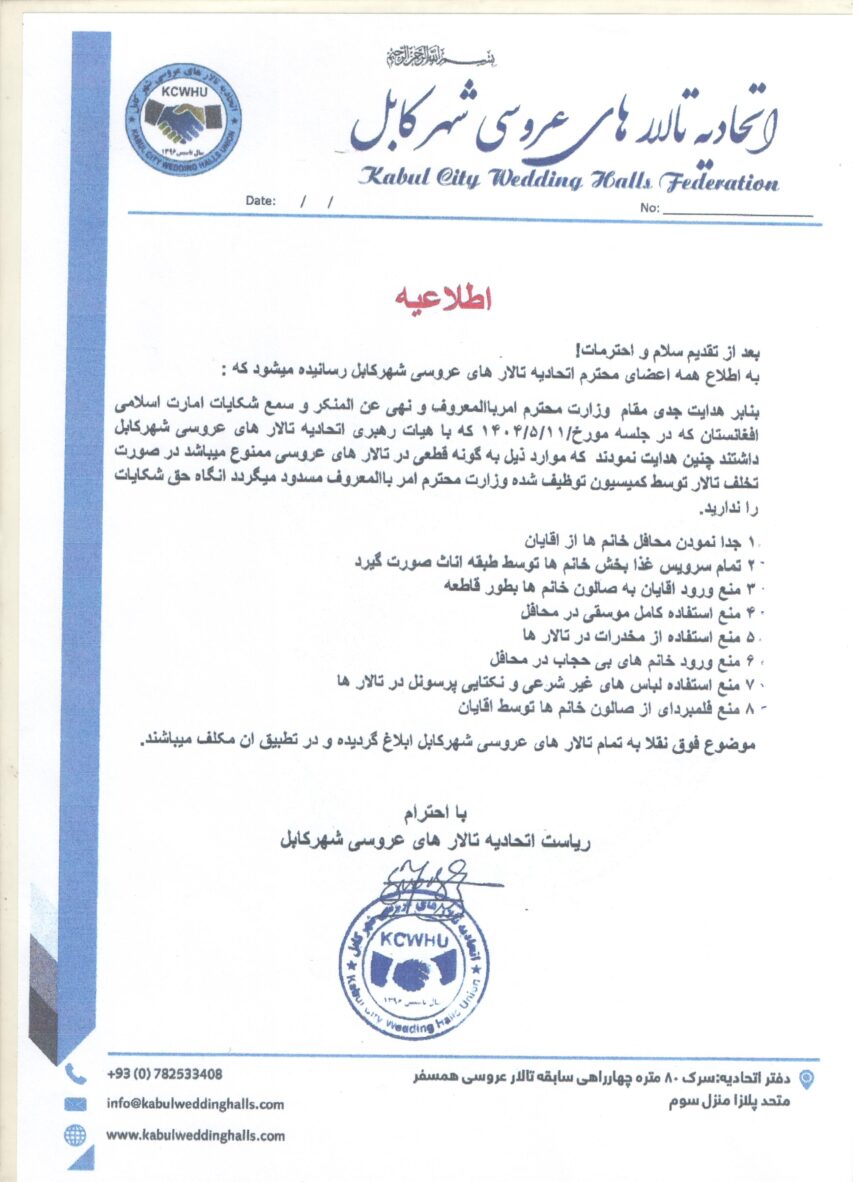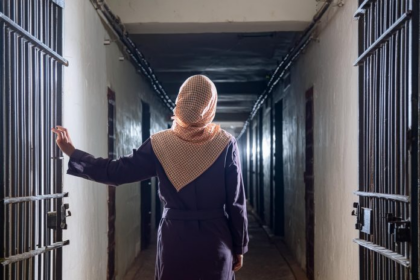RASC News Agency: In a fresh display of ideological authoritarianism and cultural repression, the Taliban’s Ministry for the Propagation of Virtue and the Prevention of Vice has issued draconian new restrictions on wedding ceremonies across the city of Kabul. A directive obtained by RASC News reveals that, effective from July 31, the regime has imposed a series of sweeping bans on how Afghanistani citizens are allowed to celebrate their most intimate and joyous life events. The directive, circulated to the Kabul Wedding Hall Union, mandates the absolute prohibition of “mixed gatherings” of men and women. Wedding venues are now required to completely segregate male and female guests. This state intrusion into private family life is emblematic of the Taliban’s relentless campaign to impose a rigid, regressive, and dehumanizing interpretation of social conduct under the guise of religious doctrine.
Even more troubling is the Taliban’s total ban on music. The order forbids not only live performances and musical instruments but also the mere playback of songs on audio systems. In a country where citizens endure extreme economic hardship, security uncertainty, and psychological trauma, stripping away music a universal source of joy and emotional release amounts to a direct assault on national culture, public morale, and artistic expression. The regime has also outlawed photography, videography, and the entry of cameramen into wedding venues. This blatant infringement on the right to record personal memories is a calculated move to tighten control over even the most personal aspects of citizens’ lives. It reflects the Taliban’s broader ambition to establish total surveillance and ideological domination over Afghanistani society.
Perhaps the most disturbing element of the directive is the explicit command to inspect women’s clothing upon entering wedding halls. According to the document, if a woman’s attire is deemed “un-Islamic” by Taliban enforcers, she will be subject to detention on the spot. This policy not only violates the fundamental dignity of Afghanistani women but introduces a state-controlled system of bodily regulation, enforced by an extremist regime that has shown nothing but contempt for women’s rights, autonomy, and existence in public life. The Taliban has further criminalized what it vaguely terms “immodest clothing” and “un-Islamic makeup,” without offering any legal definition opening the door for arbitrary punishments, harassment, and humiliation. These ambiguities create fertile ground for widespread abuse, social policing, and the institutionalized subjugation of women, in total contradiction to universal human rights norms and individual freedom.
The directive concludes with a warning: all wedding halls in Kabul are required to comply fully with these restrictions or face legal prosecution, hefty fines, or closure. Taliban “inspection teams” are being deployed to monitor and report violations in real time, a chilling reminder that the regime prioritizes fear, coercion, and ideological purity over governance, service delivery, or basic human decency. At a time when the Afghanistani people are desperately in need of hope, unity, and moments of reprieve following decades of war, displacement, and poverty, the Taliban has instead poisoned the social atmosphere to such an extent that even a private family celebration has become a battleground of repression. The regime’s obsession with control over joy, art, and femininity reveals not strength, but a deeply rooted insecurity masked by brutality.
This latest crackdown is yet another grim chapter in the Taliban’s campaign to erase the cultural, social, and human vibrancy of Afghanistan, replacing it with a bleak authoritarianism where happiness is criminalized, and individuality is crushed.






